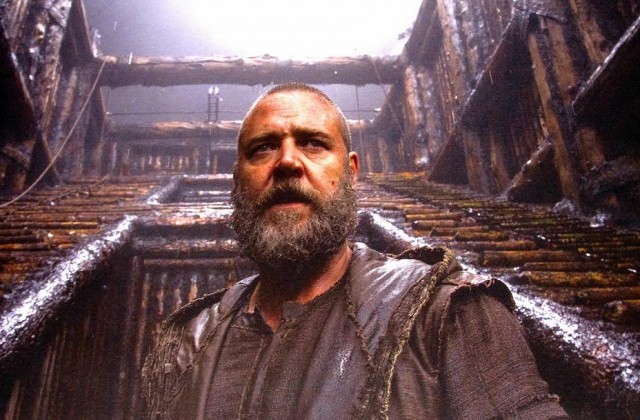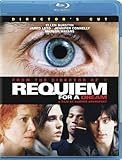Audacious and astounding, Noah is an epic fantasy with depth

While not as good as director Darren Aronofsky’s best works, ‘Noah’ thrills in an engrossing interpretation of the Biblical story.
Belief is dangerous. No matter how you want to look at it, faith can lead to very bad choices, but there is also the reverse: it can also lead to the best choices. Common beliefs have changed and evolved through the course of humanity, but there are a few threads that have continued since the start of storytelling and writing. There is a strong desire to want life and reality to mean something in some “higher than” life way, that life isn’t just random or meaningless. Stories try to create heroes, people that make a difference and change the future for the better, sometimes in small ways, sometimes with great importance. That’s one thread.
Another is death. The acceptance of death and the end of everything you know, this is something stories have talked about since we could think about it. Modern art, like TV and movies, often bring this sort of thing up, sometimes making the “point” of a piece of art the importance of that acceptance. But I won’t talk too much about that, because it would end with many spoilers … well, okay, just one: The Sixth Sense. But again, this ties back to the importance of choice, and the dangers of believing how you’re supposed to choose. How many people died or suffered because someone thought a deity or higher power wanted them to do something? How many did something wondrous and regal?
Noah is the latest from brilliant director Darren Aronofsky, who may be my favorite director, not because I think his movies are the greatest of all time but because they are all filled with courage and creativity, pushing the boundaries of what is reasonable from a mainstream release. Even The Wrestler, probably his most mainstream in terms of story structure and narrative arc, absolutely wrecked me. I own it, but I have yet to be able to rewatch it. Noah is loosely based on the tale (or fable or myth or true story or whatever you want to think) from the Bible, right near the beginning after the story of Adam and Eve. As something of a biblical reader myself, I recognized many of the apocryphal and less known elements, but also the ones explicitly mentioned in the text.
Of course, much of the movie is wholly invented full cloth to provide a full narrative arc that does an enormous amount on many, many themes and ideas. This is one of the few problems I had with the movie: it sometimes gets a bit lost, because it’s trying to do so much. The movie retells the story of Noah, starting from him as a child of the line of Seth, one of very few uncorrupted (for the most part) by the evils of humanity. Throughout the world, the descendants of Cain (as Abel, naturally, died young) have built off the land to the point of exploitation and severe damage. This is where the environmental message comes in, but there are a few points to be made on that. One is that a common interpretation of the Noah story is that he was vegetarian until after the flood, after which he was “permitted” to eat specific animals, and only without causing them undue pain. There is a strong message in the movie of “use but do not abuse,” one that shows that industry is not necessarily evil.
After all, the ark is built using tools and the mind of man, tearing down trees and hurting the environment — but not permanently, or anymore than is needed to complete the task. But that’s just one of the many ideas in the movie. Noah (Russell Crowe) is just living his life, raising his family with his wife (Jennifer Connelly) and three sons (Shem, Ham, Japeth) until they find an orphaned girl Ila (later played by Emma Watson). And then Noah gets a vision in a dream, trippy and dark, that tells him that the Creator (the only way any deity is referred to in the movie) is planning to flood the world. So Noah must travel to his grandfather, the ancient Methuselah (Anthony Hopkins in excellent extreme old age makeup) for some help on what to do.
Noah decides he must protect the “innocents” of the world, the animals of the sky and ground, and starts building his ark. This is an important point of the movie, the initial decision and interpretation Noah makes of his visions. At no point is there an explicit command or Heavenly word of warning, Noah needs to decide for himself … although there are a few supernatural things to help him along. This is where some will begin to have issues with some parts of the movie. I don’t think everyone will like the inclusion of fallen angels here, which I won’t describe for spoilers sake, or the miraculous way Noah is helped to build the ark. But I think it all ties into several key themes of the movie.
One is that sometimes you can make a bad decision that doesn’t necessarily ruin things, if you figure out how to redeem yourself. Another is that trying to interpret the messages of a Creator is foolish when you don’t allow for the possibility that you might have it wrong. There is another potentially divisive element, the other humans, led by complicated but essentially villainous Tubal-cain (Ray Winstone). Tubal-cain is described in the Bible as essentially the inventor of “instruments of bronze and iron,” and according some interpretations, also all warlike weapons. Tubal-cain’s arc, the inverted arc of Noah (I can’t really explain without spoiling), is not without flaw, but hopefully will leave you feeling like it had weight and purpose. It all comes down to choices; Noah needs to decide how to fulfill the Creator’s will, sometimes when it breaks him or hurts the ones he loves … if he’s even doing the correct thing. But in the end, there is this feeling, with the mystical elements and large action scenes, that this is fantasy in the vein of Lord of the Rings, but with more maturity and complexity of character.
Now putting the story aside, how are the other elements of this movie? The acting … well, it’s slightly mixed. Russell Crowe is uniformly excellent from beginning to end, showing the best acting I’ve seen since LA Confidential. The other supporting players are good, although sometimes I found Ray Winstone a bit hammy, Jennifer Connelly a bit weepy in a scene or two, and Emma Watson sometimes a bit stretched. But this is Crowe’s show, with his physicality and gruff voice being used to great effect. As for the visuals, except for a few minor CGI faults, they are wonderful, and at times, truly beautiful. There is one particular sequence that is one of the best I’ve ever seen in any film — this is the sort of reason I admire Aronofsky so much. While others may harp on minor logical issues or inconsistent performances, sometimes the movies just ties it all together in away that is both subtle and loud, obvious and insidious. There are also the less obvious issues, like how the cast is basically entirely Caucasian, but I can’t really blame the director for that because I don’t know how much of a choice he had. But I will see this movie again, and ponder about it again.
The more time I think about this movie, the more I believe there is something to think about and discuss. It’s not the best movie Aronofsky’s done, or even the second best, but I am really happy it got made. Oh, and the music from Clint Mansell is truly epic.
 CliqueClack
CliqueClack







Despite monkey business regarding screenings, pre-release to media and other, I’ve been interested in seeing this film from the get-go. Nothing stated was going to deter me from getting a sitting of it in the books. Your review? Has my interest piqued even more.
Now … your bit about The Wrestler and what you stated about it: I’m intrigued there, too, being Mickey Rourke has been a favorite actor of mine for the longest time with the likes of Diner, Rumble Fish and The Pope Of Greenwich Village ….
Did you end up seeing it?
… not … yet …
Ah. You should, at least so we can argue about it.
I will. Tough to get to the movie of late …
Hokay … saw it …